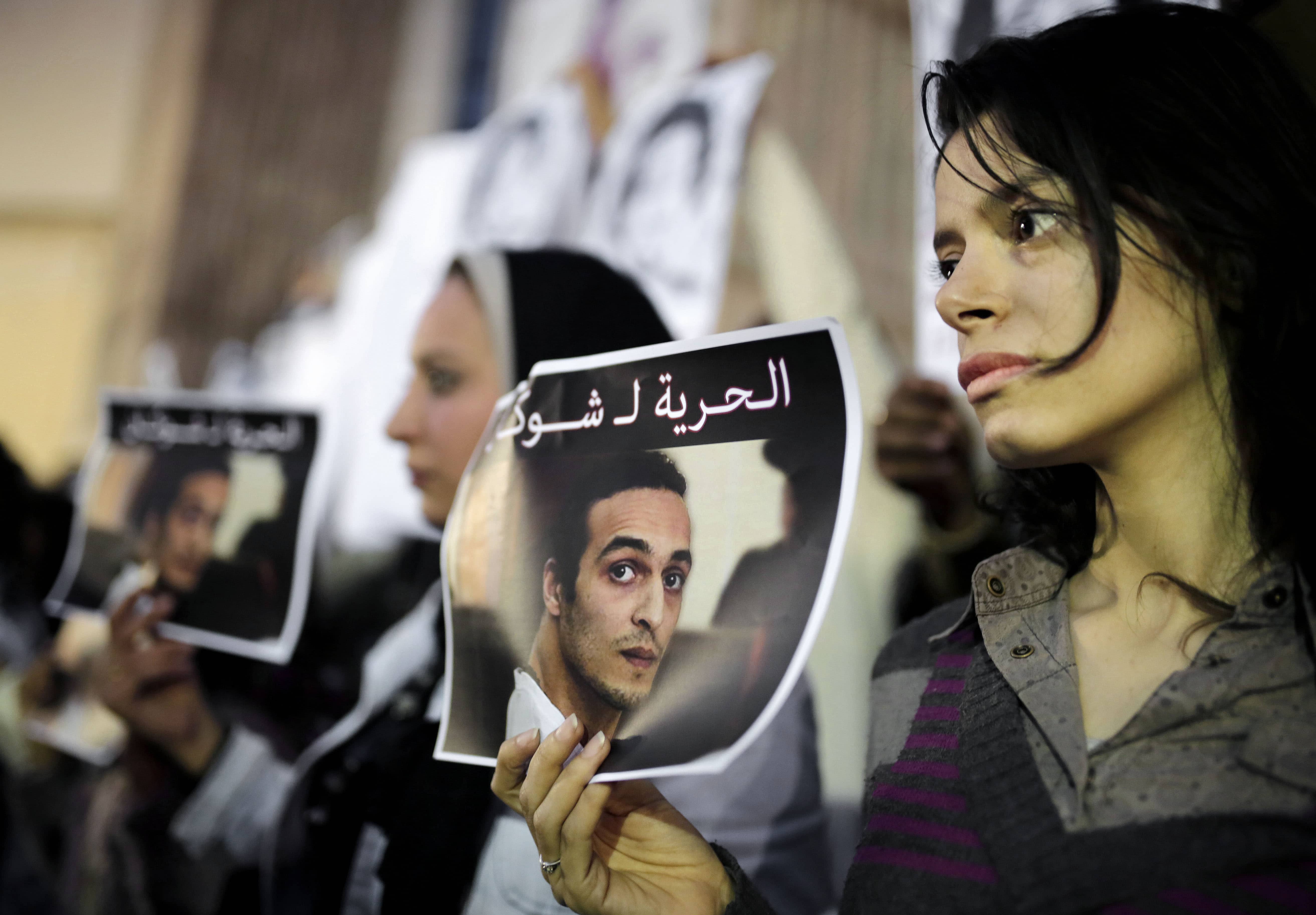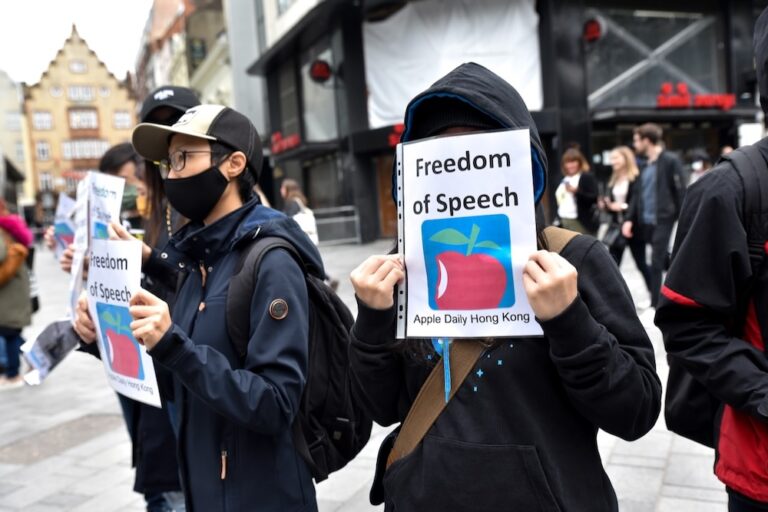Worldwide, the number of journalists behind bars for their work declined moderately during the year, but a handful of countries continue to use systematic imprisonment to silence criticism.
This statement was originally published on cpj.org on 15 December 2015.
A record number of journalists are behind bars in China, and the number of journalists jailed in Turkey and Egypt also rose dramatically in 2015, the Committee to Protect Journalists has found. Overall, the number of journalists imprisoned around the world declined modestly from record levels recorded in the past three years.
CPJ identified 199 journalists in prison because of their work in 2015, compared with 221 the previous year. Iran, Vietnam, and Ethiopia were among those countries holding fewer journalists prisoner, but in all three countries a climate of fear for the media persists, with many of those released continuing to face legal charges or harsh restrictions, including forced exile.
Perhaps nowhere has the climate for the press deteriorated more rapidly than in Egypt, now the second worst jailer of journalists worldwide. President Abdel Fattah el-Sisi continues to use the pretext of national security to clamp down on dissent. Cairo is holding 23 journalists in jail, compared with 12 a year ago. As recently as 2012, no journalists were in jail for their work in Egypt. Those behind bars include Ismail Alexandrani, a freelancer who focuses on the troubled Sinai Peninsula and who was recently arrested on arrival in Egypt from Germany. (Read detailed accounts of each prisoner here.)
Conditions for the media have also taken a turn for the worse in Turkey, which doubled the number of journalists in jail over the year to 14. The country released dozens of journalists in 2014 after being the world’s worst jailer for two consecutive years, but in 2015 – amid two general elections, further entanglement in the Syrian civil war, and the end of a fragile ceasefire with fighters of the banned Kurdistan Workers’ Party (PKK) – fresh arrests make it the fifth worst jailer globally. Most recently, Can Dündar and Erdem Gül, senior staff members of independent daily Cumhuriyet, were arrested on charges of espionage and aiding an alleged terrorist group after publishing reports that alleged Turkey’s National Intelligence Organization (MIT) had transferred weapons to Syria under cover of humanitarian aid.
A quarter of those jailed globally are in China, the world’s worst offender for the second year in a row; the 49 journalists in prison there are a record for that country. As President Xi Jinping continues his crackdown on corruption and as the country’s economic growth slows and its markets become more volatile, reporting on financial issues has taken on new sensitivity. Wang Xiaolu, a reporter for the Beijing-based business magazine Caijing, was arrested on August 25 on suspicion of “colluding with others and fabricating and spreading false information about securities and futures trading” after he reported that a regulator was examining ways for securities companies to withdraw funds from the stock market. He later appeared on state television saying that he regretted writing the story and pleading for leniency, even as it was unclear whether he had been formally charged with a crime. As CPJ has documented, televised confessions are a tactic repeatedly deployed by Chinese authorities for dealing with journalists who cover sensitive stories.
The lengths to which China is willing to go to silence its critics is demonstrated by at least three people not on CPJ’s imprisoned list: the brothers of Shohret Hoshur. The Washington D.C.-based Uighur journalist for U.S. government-funded Radio Free Asia (RFA) reports critically on China’s treatment of his ethnic minority. According to Hoshur and RFA, China, unable to arrest him, has thrown three of his brothers who still live in the Xinjiang Uighur Autonomous Region—Tudaxun, Shawket, and Rexim—into jail on anti-state charges in retaliation for Hoshur’s work.
Anti-state charges remain the favored tool for jailing journalists in Iran, where the number of journalists in jail fell in 2015 to 19 from 30 a year earlier, but where the revolving-door policy of allowing some prisoners out on furlough while others are arrested continues. On November 2, authorities rounded up at least four journalists, including the prominent columnist Issa Saharkhiz, on anti-state accusations. The Washington Post’s Jason Rezaian, who has been held longer than any U.S. correspondent by any foreign government since CPJ began tracking imprisonments in 1990, is accused of espionage, among other charges. State media has reported that he has been convicted and sentenced, but has not said on which charges or provided any other detail.
The number of prisoners also shrank in Vietnam, but in some cases release from jail comes at a high cost. Ta Phong Tan was freed after serving three years of a 10-year term and was immediately flown to the U.S. In October 2014 Tan’s colleague, Nguyen Van Hai, with whom she co-founded the Free Journalists Club in 2007 and who was also imprisoned for his work, was also forced into exile. The country remains among the most censored in the world.
Another of the 10 most censored countries is Ethiopia, which released six bloggers from the Zone 9 collective in 2015, but they report that they face travel restrictions. Meanwhile, Ethiopia’s prisoners still include prominent online columnist Eskinder Nega, who is serving an 18-year term on terrorism charges, and Temesghen Desalegn, an opinion writer who has been denied health care in prison, according to people who have visited.
While anti-state accusations are the most commonly used charge for putting journalists in jail, applied in 55 percent of cases, CPJ found the highest proportion of charges in five years, 25 percent, are retaliatory—arbitrary, trumped-up accusations such as drugs or weapons possession, embezzlement, or assault. Two such cases are Khadija Ismayilova, sentenced to seven and a half years in Azerbaijan for illegal business, tax evasion, abuse of power, and embezzlement, in retaliation for her investigations of alleged corruption; and Azimjon Askarov, sentenced to life in prison by Kyrgyzstan for the murder of a policeman in retaliation for his exposure of wrongdoing by police and prosecutors.
Read about other trends and details that emerged in CPJ’s research.



